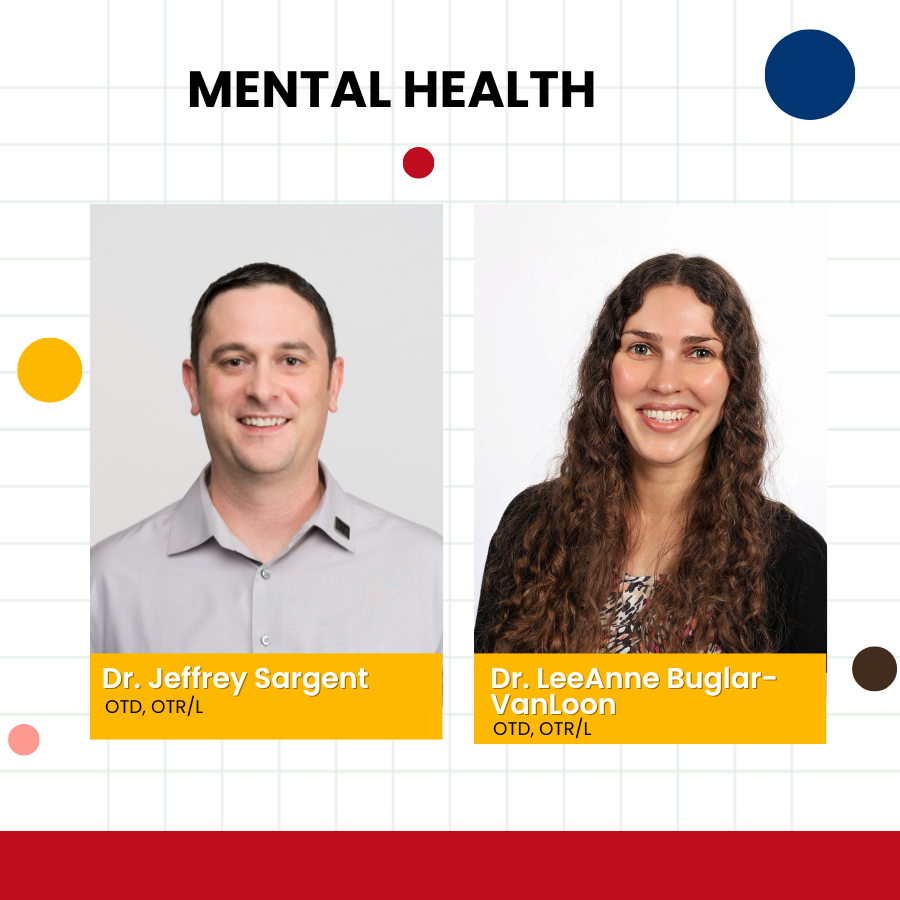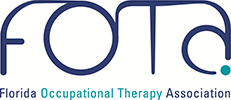Breaking Down Barriers in the Community-Based System of Care A Call to Action
 Breaking Down Barriers in the Community-Based System of Care A Call to Action
Breaking Down Barriers in the Community-Based System of Care A Call to Action
Dr. Jeffrey Sargent OTD, OTR/L
Dr. LeeAnne Bugter-vanLoon OTD, OTR/L
Background
An occupational therapy practitioner’s ability to provide community services in Florida remains a daunting task. Multiple challenges pertaining to funding and insurance reimbursement are well known. However, there is a general lack of understanding of occupational therapy’s scope of practice and role in community-based care. These challenges are furthered by a lack of research and public exposure demonstrating our value in the community-based system of care.
A 2024 report released by Mental Health America further demonstrates the ongoing challenges that impact mental health care across the nation. The report revealed that, although Florida’s overall mental health ranking has improved from 25th to 18th since 2022, access to services remains ranked at 40th out of 51 (Reinert et al., 2021, 2024). These combined issues place limits on occupational therapy practitioners’ opportunity to provide services for this underserved population. While there remain larger legislative needs, bringing about change begins from the ground.
Community Non-Profit System of Care
Efforts to break down such barriers and increase occupational therapy inclusion in community-based settings are ongoing. In July 2022, Dr. Bugter-vanLoon initiated a pilot program with MHASEFL to provide occupational therapy services for adults with severe and persistent mental health conditions in Broward County, Florida. Dr. Bugter-vanLoon supervised and collaborated with a team of peer specialists to provide occupational therapy to those in the organization’s Power-of-Peers (POP) program, that works with individuals discharged from the hospital following a mental or behavioral health crisis.
The first two years of the program demonstrated positive outcomes and saw increased independence and occupational performance amongst participating individuals. This was measured using evidence-based assessments, the individuals’ achievement of individualized goals, and reported self-perception of capabilities. Goals were largely focused on promoting successful community-reintegration through increasing functional independence within a variety of daily occupations and addressing the holistic physical, cognitive, mental, and neurological health needs of the population served. To further address community needs, the second year of this pilot program saw an expansion of services to include consultative occupational therapy to members of the organization’s drop-in center.
This third year, Dr. Bugter-vanLoon has successfully transitioned into an independent occupational therapy role within the organization. Currently, she continues to actively work with the POP team to provide services for individuals with mental health diagnoses and other co-occurring conditions that impact independence in daily living. Additional avenues for expansion are actively being explored and developments are underway.
Federal System of Care
Also serving as co-chair for FOTA’s Mental Health SIS, Dr. Jeffrey Sargent works at James A. Haley VA HUD-VASH program. He helped in developing the role for occupational therapy to work with the homeless population to support their community reintegration needs. Within this role Dr. Sargent has developed the position working under the umbrella of the social work department. Dr. Sargent see’s his clients in their lived environment, be it homeless shelters, the woods, the side of the road, their home, or other living facilties
Currently, Dr. Sargent works with the homeless population in helping them achieve higher levels of independence in their everyday lives. Within this population he works with veterans on a myriad of topics and approaches, as well as a broad spectrum of physical, neurological, and mental health disorders. While the overarching mission of occupational therapy guides his practice, he has taken an active role in the development of community-based groups covering the topics of community reintegration, occupational identity, substance use disorders, and normative physical dysfunction. As well, he, along with other staff have begun the implementation of comm unity-based group outings to grocery stores, clothing stores, leisure-based activities, and fitness related activities. Other areas of focus include hoarding, employment support, medical liaison, etc.
Looking Forward
Dr. Sargent and Dr. Bugter-vanLoon both have advocated tirelessly in building capacity for continued occupational therapy inclusion in community-based settings. While leveraging different funding sources, as well as systems of care, they have collaborated to bring about exposure to the change a single occupational therapist can bring for a person attempting to re-enter the community and live a meaningful life. Utilizing approaches grounded in the Model of Human Occupation (MOHO), both seek to bring more exposure to the distinct role of occupational therapists in community-based settings through research focusing on occupational participation as a vehicle for long-term goal accomplishment and sustainment.
However, we cannot do this alone! We are seeking input from other occupational therapists working in community-based settings across the State of Florida. We would like to hold round table discussions in the future, as well as quarterly meetings discussing the efforts of OTs across the state. We seek to collaborate in the effort of unifying our approaches through evidence-based practice, as well developing and pursuing opportunities for research and presentations to highlight our role in the community. Through these efforts we hope to shape the future landscape by increasing the amount of OTs working in the community across Florida.
References
Reinert, M., Fritze, D., & Nguyen, T. (2021). The state of mental health in America 2022. https://mhanational.org/sites/default/files/2022%20State%20of%20Mental%20Health%20in%20America.pdf
Reinert, M, Fritze, D., & Nguyen, T. (2024). The state of mental health in America 2024. Mental Health America. https://mhanational.org/issues/state-mental-health-america?eType=EmailBlastContent&eId=920d152f-693e-4510-9953-932adc572de4
